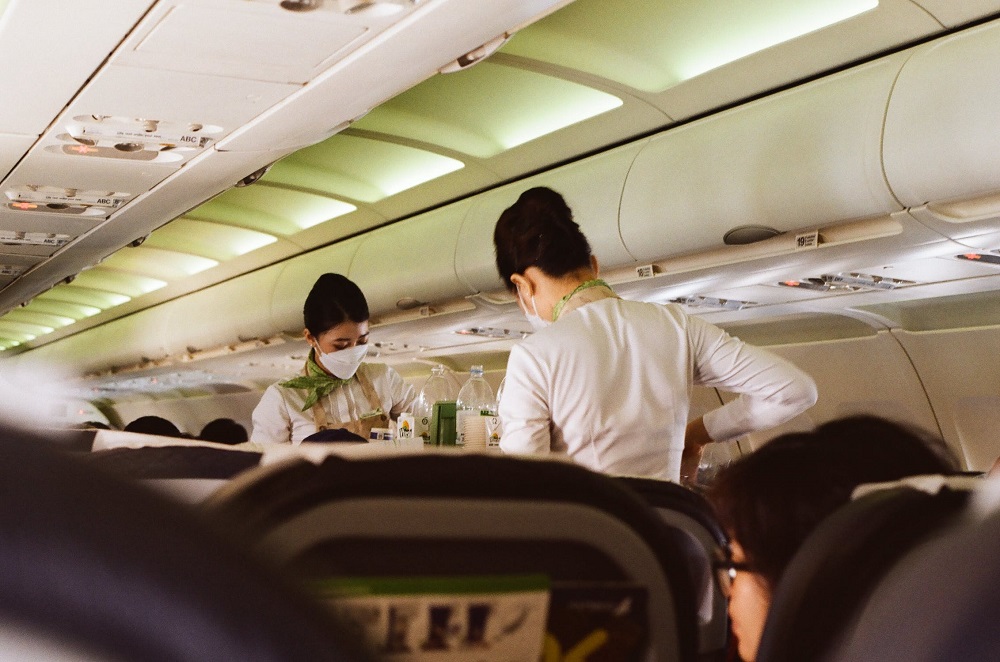Now is the time to get into the airline industry, so what are the medical requirements for cabin crew?

The demand for passenger air travel is set to grow over the coming years, fuelling the need for more cabin crew staff to enter the industry. According to statistics from Boeing, passenger traffic is forecasted to grow by 5% per year from 2013 to 2032, with the world aircraft fleet set to double during this time. This is backed up by statistics from Statista, which show that between 2021 and 2040 there will need to be 178,000 new flight attendants in Europe alone. With this forecasted growth in demand, it’s a great time to get into the airline industry, so if you are thinking about it, you might be wondering what are the medical requirements for cabin crew?
Please read on and we will outline the medical examinations new and existing cabin crew members will need to undergo and how to prepare for them.
Who needs a cabin crew medical and when?
It is a requirement of all cabin crew staff in the United Kingdom and Europe to have a full clinical examination before they can begin their duties. The medical is valid for 5 years, after which time, the medical will need to be renewed if you wish to continue in the role.
In certain cases – such as if you have a medical condition, have had a long break from work or if there is any doubt about your fitness – you may be advised to have your medical renewed more frequently than every five years.
It is therefore important to stay up to date with your medical records in order to continue working as a cabin crew member. If your medical certificate expires, you will not be allowed to fly unless you book a renewal medical as soon as possible. Keeping your medical up to date allows you to stay in the role and remain in safe and secure working conditions.
Medical requirements for cabin crew
Being a cabin crew member is an incredibly demanding job, requiring you to remain on your feet for long periods of time, spend many hours in the air, and often work odd hours on night and long haul flights. To ensure that you are prepared to take on this safety-critical role and keep a smile on your face for passengers, it’s essential that you are physically and mentally fit.
Before starting the job, you will have to take a cabin crew medical test. During this test, you’ll be asked to provide a detailed medical history. This is your opportunity to share any information about past conditions, previous medical investigations, or any worries and concerns that you may have. If you fail to disclose any relevant information, it can lead to delays in your medical report being issued and thus a delay in your job start date.
During your cabin crew medical exam, you can expect to be tested on a variety of aspects including blood pressure, hearing, eyesight, height and weight, urine test, ECG, and a reach test to ensure you can safely reach items in overhead lockers.
Additionally, you may be asked about any existing medical conditions, recent broken bones, and general questions regarding your health, such as alcohol consumption and exercise routine. All of these tests are performed to ensure that you’re in good health and can meet the expectations of a cabin crew member.
When you attend your cabin crew medical assessment, it is important that your health and fitness are suitable for the demands of the job. In particular, the examiner will be looking for evidence that you can complete the necessary training for aspects such as slide descending, firefighting, and using protective breathing equipment in smoke-filled environments.
Additionally, you should be able to use the aircraft’s emergency systems and equipment, be able to perform cabin crew duties at altitude in pressurised and recirculated air, in turbulent conditions and with limited space, and be able to cope in both psychologically demanding and emergency situations.
How to prepare for your cabin crew medical test
Knowing what will be asked of you during the medical can help you to better prepare, but it is just as important to ensure that your health and fitness levels are up to scratch. Taking care of yourself and keeping your mind and body in good shape are essential for passing your cabin crew medical assessment.
For more tips on how to prepare for your cabin crew medical please read our blog.
Book now for your cabin crew medical
Now that you know what to expect from a cabin crew medical and how to prepare, you just need to book in for your test. Heathrow Medical is an approved Aeromedical examiner offering the full spectrum of aviation medicals. Call us today on 020 8528 2633 or click here to find out more or book your cabin crew medical test.
